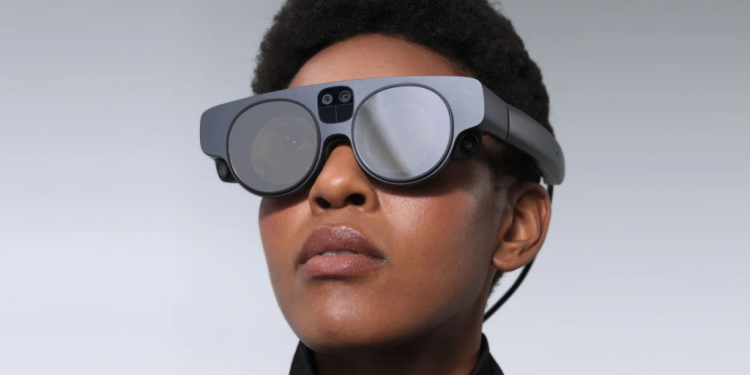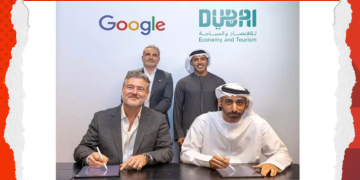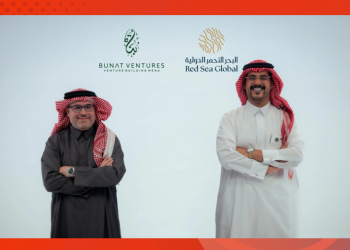Saudi Arabia just threw another $205 million at Magic Leap, pushing its total investment past $1 billion in a company that has never made a profit. The Florida-based augmented reality firm has become one of tech’s most expensive experiments, burning through over $4 billion since 2010 while struggling to find its footing in a crowded market.
The kingdom’s Public Investment Fund now controls Magic Leap after quietly taking over the company in 2022. This latest cash injection keeps the doors open for a business that laid off 80% of its workforce after a failed consumer launch and has since pivoted multiple times, trying to find sustainable revenue.
Magic Leap Burns Through Billions Without Success
Magic Leap started with big promises in 2010 under founder Rony Abovitz. The company teased consumers with videos showing digital whales jumping through gymnasium floors and virtual solar systems floating in offices. Early demonstrations suggested Magic Leap would deliver something truly different from competitors like Microsoft’s HoloLens.
The Magic Leap One launched in 2018 to widespread disappointment. Critics found the $2,300 headset clunky, with a limited field of view and battery life that barely lasted two hours. Sales numbers never reached public disclosure, but reports suggested fewer than 6,000 units sold in the first six months.
The consumer failure forced massive layoffs and a complete business model change. Magic Leap shifted focus to enterprise customers, hoping businesses would pay premium prices for AR tools that consumers rejected.
Saudi Vision 2030 Drives Risky Tech Investments
Saudi Arabia’s continued support for Magic Leap connects to Crown Prince Mohammed bin Salman’s Vision 2030 plan. The ambitious program aims to diversify the kingdom’s economy away from oil dependence by investing heavily in technology, gaming, and entertainment sectors.
The PIF has spent tens of billions on tech investments that often raise eyebrows. The fund backed a proposed $55 billion buyout of Electronic Arts and hosts the annual Esports World Cup. It has also poured money into football clubs and recruited top players for the domestic Saudi Pro League.
These investments serve multiple purposes beyond potential returns. They help build soft diplomatic power and position Saudi Arabia as a modern, tech-forward nation. However, several flagship Vision 2030 projects like the Neom metropolis and The Line smart city have faced delays and cost overruns.
Google Partnership Offers Magic Leap New Hope
Despite its struggles, Magic Leap secured a significant partnership with Google in May 2024. The collaboration combines Magic Leap’s optics expertise with Google’s software platforms to develop new AR experiences.
Google previously led a $542 million investment round in Magic Leap over a decade ago. The search giant has its own AR ambitions, including Project Astra glasses being developed by its DeepMind division. Google has also created Android for mixed reality headsets.
The partnership represents a lifeline for Magic Leap as it tries to find relevance in an increasingly competitive market. Meta dominates VR with 77% market share through its Quest headsets, while Apple’s Vision Pro has quickly captured 5.2% of the premium segment despite costing $3,500.
Enterprise Focus Brings Limited Success
Magic Leap has repositioned itself as an enterprise AR specialist since abandoning consumer ambitions. The Magic Leap 2 headset offers improved optics and longer battery life compared to its predecessor. The device runs on Android and can display virtual objects overlaid on the real world with reasonable accuracy.
Healthcare represents one of Magic Leap’s strongest use cases. Medical schools use the headsets for anatomy training, allowing students to examine virtual organs and practice procedures. Manufacturing companies have deployed Magic Leap devices for assembly line training and equipment maintenance guidance.
However, enterprise AR adoption remains slow. Companies often require extensive custom software development to make AR useful for their specific needs. The high cost of headsets and ongoing technical support limits deployment to pilot programs rather than company-wide rollouts.
Future Depends on Sustained Saudi Support
Magic Leap’s survival now depends entirely on continued Saudi funding. Company filings indicate expectations for additional investor funding in 2026 to maintain operations through the “going concern period.”
The Google partnership offers hope for new applications and market opportunities. However, Magic Leap must prove it can generate meaningful revenue before investor patience runs out. The company has consumed over $4 billion across 14 years without reaching profitability.
Saudi Arabia’s persistence with Magic Leap reflects broader challenges in the kingdom’s tech investment strategy. Many Vision 2030 projects have struggled to deliver promised results while consuming enormous capital. The PIF’s commitment to Magic Leap will test whether Saudi patience has limits when profits remain elusive.
The augmented reality market continues to grow, with projections reaching $96.32 billion by 2029. However, success requires more than advanced technology. Companies need clear value propositions, reasonable pricing, and sustainable business models. Magic Leap has yet to demonstrate any of these requirements despite years of trying and billions in investment.














